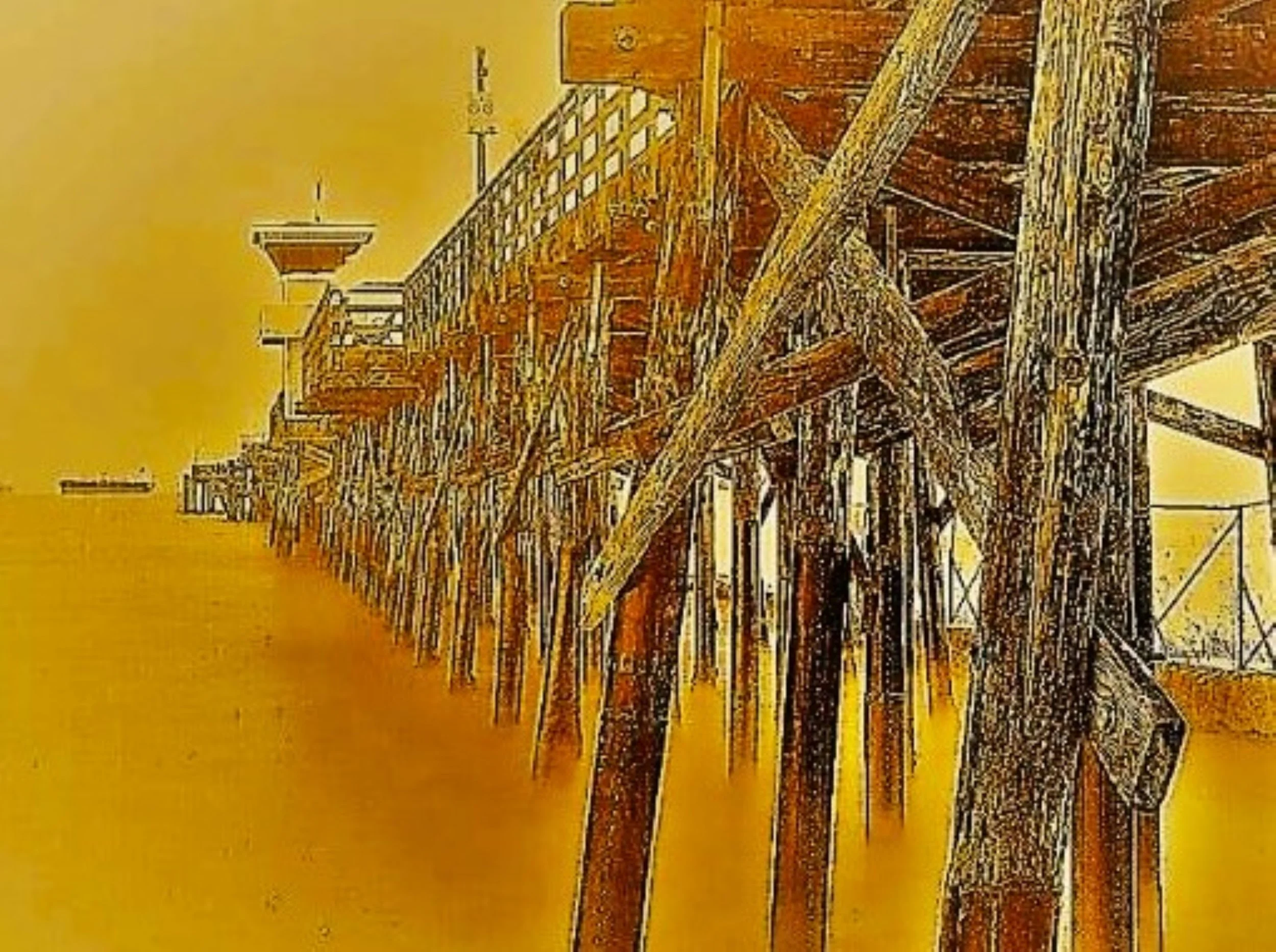Christopher Julius Miller
Before becoming an artist, you had a significant career as a commercial deep sea diver. How did your experiences in the Navy and underwater exploration influence your approach to art and photography?
I began underwater photography to add a skill that would enable me to stay competitive in a job market that remotely operated vehicles, A.I. and robotics could dominate in future years. Encouraged by compliments and my like for underwater photography, I decided to pursue this as a career. At the time, I did not understand things like art elements and how to manipulate them. I felt the best way for me to correct this is to learn them in a classroom environment. I returned to school and enrolled in art classes at Long Beach City College.
How did your education at Long Beach City College shape your artistic style and philosophy? Can you share how exposure to different media helped improve your skills?
I had no artistic style when I enrolled at the community college. I believe that my entire college experience contributed to my philosophy. It wasn't the art and other classes that influenced me philosophically. Being exposed to different and like minded students and staff also made a big impact. The two art classes that shaped me the most artistically were Tribal Art and Mesoamerican Art. These are art history classes. They showed me how different media and artistic styles were used over periods of time. I also learned a vocabulary which enabled me to describe and talk about art.
You describe yourself as "The Anti Artist" and emphasize passion over innate talent. Can you elaborate on this philosophy and how it influences your creative process?
I believe that most people have a preconceived idea of the typical artist. By rebranding myself as The Anti Artist allowed me to point out a few things. For example, many stereotypes are not correct. The path you choose early in life may not be the path you are on later. The best gift that you can give to mankind is just being a kind and decent person. Talent is God-given or something you are born with. Talent is something not everybody has, including me. Passion is a human trait that everyone has to different degrees and can remain hidden. Having a passion will make you happy. Happiness is the key to a good life.
You've been honored with several prestigious awards like the Talent Prise Award at Art Show International and the Bronze Award at Global Painting Conclave. What do these recognitions mean to you personally and professionally?
These awards mean a lot to me both personally and professionally because they validate my artwork as being good and legitimizes me as an artist. Not just any artist but an award winning artist. By continuously entering and being successful in these competitions also contributes to my artistic development and keeps my artwork relevant.
As someone who sees the creation of art as a challenging process, what has been the most difficult piece you've worked on, and what did you learn from that experience?
When I am faced with a difficult task I don't dwell on the million bad reasons why I should not take this on. I concentrate on the one good reason why I should complete the task. My most difficult artwork to date is a mixed media relief on canvas titled DEEP SEA FISHING. Like many of my mixed media pieces, this artwork is made with bone, shells, wood and teeth. By repurposing remnants of formally living organisms, they are symbolically resurrected into creatures of imagination, folklore and legend. All of the things I mentioned were found during my walks in the wilderness. What I learned from this project is that sometimes your best effort is only important to you. If you are happy with your effort, then you did well.
As the General Director of Fine Art and Film Photography L.L.C., what visions or goals are you aiming to achieve with your leadership in the art community?
Whenever I am involved in a community event I make my participation a fundraiser. I do this with matching donations and contributing a portion of sales to a charity. My ultimate goal is to create a nonprofit museum / gallery with my collection of contemporary and tribal art. The mission will be to inform, educate and inspire by offering a different viewpoint or perspective on how to view the environment around us. Also promote aspiring artist who are innovative or are unorthodox with their approach to art.
"Beauty surrounds those who choose to see it" – could you discuss how this belief influences your choice of subjects or projects? What usually inspires you to pick up the camera or start a new piece?
Beauty surrounds those who choose to see it are words I live by. Recognizing beauty and finding inspiration often is not what you see. It is how you see an object or the environment. We are fortunate to all have quality cameras built in to our cell phones. If you see something cool, photograph it. Many cameras have editing features or apps that come with the camera. Learn to use them. In your free time make a copy and use those features to manipulate the image until you see what you like. All cameras are capable of capturing award winning images as long you stay within the capabilities of the camera.
What advice would you give to individuals who might not see themselves as traditionally talented but are driven by a passion similar to yours?
My best advice to those who are driven by passion is don't worry about how good or bad you are, do your best. Your passion will show in your work. One last thing, have fun with it.
DEEP SEA FISHING, Mixed Media Relief on Canvas, 100cm x 75cm x 5cm, 2023, Christopher Julius Miller











